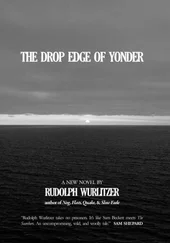W. MAUGHAM - The Razor's Edge
Здесь есть возможность читать онлайн «W. MAUGHAM - The Razor's Edge» весь текст электронной книги совершенно бесплатно (целиком полную версию без сокращений). В некоторых случаях можно слушать аудио, скачать через торрент в формате fb2 и присутствует краткое содержание. Жанр: Современная проза, на английском языке. Описание произведения, (предисловие) а так же отзывы посетителей доступны на портале библиотеки ЛибКат.
- Название:The Razor's Edge
- Автор:
- Жанр:
- Год:неизвестен
- ISBN:нет данных
- Рейтинг книги:3 / 5. Голосов: 1
-
Избранное:Добавить в избранное
- Отзывы:
-
Ваша оценка:
- 60
- 1
- 2
- 3
- 4
- 5
The Razor's Edge: краткое содержание, описание и аннотация
Предлагаем к чтению аннотацию, описание, краткое содержание или предисловие (зависит от того, что написал сам автор книги «The Razor's Edge»). Если вы не нашли необходимую информацию о книге — напишите в комментариях, мы постараемся отыскать её.
The Razor's Edge — читать онлайн бесплатно полную книгу (весь текст) целиком
Ниже представлен текст книги, разбитый по страницам. Система сохранения места последней прочитанной страницы, позволяет с удобством читать онлайн бесплатно книгу «The Razor's Edge», без необходимости каждый раз заново искать на чём Вы остановились. Поставьте закладку, и сможете в любой момент перейти на страницу, на которой закончили чтение.
Интервал:
Закладка:
I went to one or two of his parties myself and now and again I dropped in at Claridge's at six o'clock. I found Isabel surrounded by strapping young men in beautiful clothes who were in the Household Brigade or by elegant young men in less beautiful clothes from the Foreign Office. It was on one of these occasions that she drew me aside.
'I want to ask you something,' she said. 'Do you remember that evening we went to a drugstore and had an ice-cream soda?'
'Perfectly.'
'You were very nice and helpful then. Will you be nice and helpful again?'
'I'll do my best.'
'I want to talk to you about something. Couldn't we lunch one day?'
'Almost any day you like.'
'Somewhere quiet.'
'What d'you say to driving down to Hampton Court and lunching there? The gardens should be at their best just now and you could see Queen Elizabeth's bed.'
The notion suited her and we fixed a day. But when the day came the weather, which had been fine and warm, broke; the sky was grey and a drizzling rain was falling. I called up and asked her if she wouldn't prefer to lunch in town.
'We shouldn't be able to sit in the gardens and the pictures will be so dark, we shan't see a thing.'
'I've sat in lots of gardens and I'm fed to the teeth with old masters. Let's go anyway.'
'All right.'
I fetched her and we drove down. I knew a small hotel where one ate tolerably and we went straight there. On the way Isabel talked with her usual vivacity of the parties she had been to and the people she had met. She had been enjoying herself, but her comments on various acquaintances she had made suggested to me that she had shrewdness and a quick eye for the absurd. The bad weather kept visitors away and we were the only occupants of the dining-room. The hotel specialized in homely English fare and we had a cut off a leg of excellent lamb with green peas and new potatoes and a deep-dish apple pie with Devonshire cream to follow. With a tankard of pale ale it made an excellent lunch. When we had finished I suggested that we should go into the empty coffee-room where there were armchairs in which we could sit in comfort. It was chilly in there, but the fire was laid, so I put a match to it. The flames made the dingy room more companionable.
'That's that,' I said. 'Now tell me what you want to talk to me about.'
'It's the same as last time,' she chuckled. 'Larry.'
'So I guessed.'
'You know that we've broken off our engagement.'
'Elliott told me.'
'Mamma's relieved and he's delighted.'
She hesitated for a moment and then embarked upon the account of her talk with Larry of which I have done my best faithfully to inform the reader. It may surprise the reader that she should have chosen to tell so much to someone whom she knew so little. I don't suppose I had seen her a dozen times and, except for that one occasion at the drugstore, never alone. It did not surprise me. For one thing, as any writer will tell you, people do tell a writer things that they don't tell others. I don't know why, unless it is that having read one or two of his books they feel on peculiarly intimate terms with him; or it may be that they dramatize themselves and, seeing themselves as it were as characters in a novel, are ready to be as open with him as they imagine the characters of his invention are. And I think that Isabel felt that I liked Larry and her, and that their youth touched me, and that I was sympathetic to their distresses. She could not expect to find a friendly listener in Elliott who was disinclined to trouble himself with a young man who had spurned the best chance a young man ever had of getting into society. Nor could her mother help her. Mrs Bradley had high principles and common sense. Her common sense assured her that if you wanted to get on in this world you must accept its conventions, and not to do what everybody else did clearly pointed to instability. Her high principles led her to believe that a man's duty was to go to work in a business where by energy and initiative he had a chance of earning enough money to keep his wife and family in accordance with the standards of his station, give his softs such an education as would enable them on reaching man's estate to make an honest living, and on his death leave his widow adequately provided for.
Isabel had a good memory and the various turns of the long discussion had engraved themselves upon it. I listened in silence till she had finished. She only interrupted herself once to ask me a question.
'Who was Ruysdael?'
'Ruysdael? He was a Dutch landscape painter. Why?'
She told me that Larry had mentioned him. He had said that Ruysdael at least had found an answer to the questions he was asking, and she repeated to me his flippant reply when she had inquired who he was.
'What d'you suppose he meant?'
I had an inspiration.
'Are you sure he didn't say Ruysbroek?'
'He might have. Who was he?'
'He was a Flemish mystic who lived in the fourteenth century.'
'Oh,' she said with disappointment.
It meant nothing to her. But it meant something to me. That was the first indication I had of the turn Larry's reflection was taking, and while she went on with her story, though still listening attentively, part of my mind busied itself with the possibilities that reference of his had suggested. I did not want to make too much of it, for it might be that he had only mentioned the name of the Ecstatic Teacher to make an argumentative point; it might also have a significance that had escaped Isabel. When he answered her question by saying Ruysbroek was just a guy he hadn't known in college he evidently meant to throw her off the scent.
'What do you make of it all?' she asked when she had come to an end.
I paused before replying.
'D'you remember his saying that he was just going to loaf? If what he tells you is true his loafing seems to involve some very strenuous work.'
'I'm sure it's true. But don't you see that if he'd worked as hard at any productive form of work he'd be earning a decent income?'
'There are people who are strangely constituted. There are criminals who'll work like beavers to contrive schemes that land them in prison and they no sooner get out than they start all over again and again land in prison. If they put as much industry, as much cleverness, resource, and patience into honest practices they could make a handsome living and occupy important positions. But they're just made that way. They like crime.'
'Poor Larry,' she giggled. 'You're not going to suggest that he's learning Greek to cook up a bank robbery.'
I laughed too.
'No, I'm not. What I'm trying to tell you is that there are men who are possessed by an urge so strong to do some particular thing that they can't help themselves, they've got to do it. They're prepared to sacrifice everything to satisfy their yearning.'
'Even the people who love them?'
'Oh, yes.'
'Is that anything more than plain selfishness?'
'I wouldn't know,' I smiled.
'What can be the possible use of Larry's learning dead languages?'
'Some people have a disinterested desire for knowledge. It's not an ignoble desire.'
'What's the good of knowledge if you're not going to do anything with it?'
'Perhaps he is. Perhaps it will be sufficient satisfaction merely to know, as it's a sufficient satisfaction to an artist to produce a work of art. And perhaps it's only a step towards something further.'
'If he wanted knowledge why couldn't he go to college when he came back from the war? It's what Dr Nelson and Mamma wanted him to do.'
'I talked to him about that in Chicago. A degree would be of no use to him. I have an inkling that he had a definite idea of what he wanted and felt he couldn't get it at a university. You know, in learning there's the lone wolf as well as the wolf who runs in the pack. I think Larry is one of those persons who can go no other way than their own.'
Читать дальшеИнтервал:
Закладка:
Похожие книги на «The Razor's Edge»
Представляем Вашему вниманию похожие книги на «The Razor's Edge» списком для выбора. Мы отобрали схожую по названию и смыслу литературу в надежде предоставить читателям больше вариантов отыскать новые, интересные, ещё непрочитанные произведения.
Обсуждение, отзывы о книге «The Razor's Edge» и просто собственные мнения читателей. Оставьте ваши комментарии, напишите, что Вы думаете о произведении, его смысле или главных героях. Укажите что конкретно понравилось, а что нет, и почему Вы так считаете.









